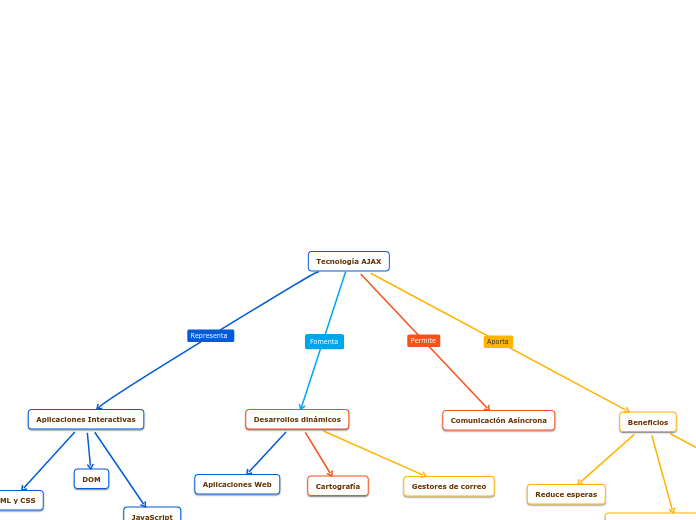SISTEMAS Y TIPOS DE SISTEMAS
The part of speech is a category to which a word is assigned according to its syntactic functions. In English the main parts of speech are noun, pronoun, adjective, determiner, verb, adverb, preposition, conjunction, and interjection.
VANESSA RAMOS 26.540.347
LOS SISTEMAS A SU VEZ SE DIVIDEN:
SUPRASISTEMAS
Es el sistema que integra a los sistemas desde el punto de vista de pertenencia
SUBSISTEMAS
Es un conjunto de partes e
interrelaciones que se encuentran estructuralmente y funcionalmente, dentro de un sistema mayor
SISTEMAS
Es un conjunto de elementos que interactúan entre sí para lograr un objetivo común.
SISTEMAS PROBABILÍSTICOS:
A conjunction is a word like 'if' 'but' or 'and' which is used to connect sentences or clauses together.
Sistema con un comportamiento no previsible.
Ejemplos: Clima, sistema económico mundial.
Coordinating conjunctions always connect phrases, words, and clauses. They are: for, and, nor, but, or, yet, so.
This stew is savory and delicious.
SISTEMAS DETERMINISTICOS
A preposition is one of the most exciting parts of grammar. A preposition is used to describe the location of something in relation to something else.
Sistema con un comportamiento previsible
Ejemplos: Palanca, polea, programa de
computador.
Compound preposition consists of two or more words.
on behalf of, according to, in front of, from across, etc.
SISTEMAS CERRADOS
An interjection is used to express emotion in a sentence.
Think of other interjections!
no presentan intercambio con el medio ambiente que los rodea, son herméticos a cualquier influencia ambiental. No reciben ningún recurso externo y nada producen que sea enviado hacia fuera. En rigor, no existen sistemas cerrados.
Subtopic
SISTEMAS ABIERTOS
An adverb is used to describe a verb, but it can also describe an adjective or another adverb.
Adverbs normally help paint a fuller picture by describing how something happens.
Un sistema abierto, es aquel que tiene necesariamente un intercambio con su medio ambiente, es decir aquel cuyas entradas se originan
en el ambiente y cuyas salidas se vuelcan a él que sin intercambio mas o menos constante no puede
funcionar
A lot, Little, Much
¿QUÉ SON?
A numeral is a word or phrase that describes a numerical quantity.
Some theories of grammar use the word 'numeral' to refer to cardinal numbers that act as a determiner to specify the quantity of a noun, for example the 'two' in 'two hats'.
Un sistema es un conjunto de partes o elementos organizadas y relacionadas que interactúan entre sí para lograr un objetivo. Los sistemas reciben (entrada) datos, energía o materia del ambiente y proveen (salida) información, energía o materia.
One, two..
Topic principal
SISTEMAS CREADOS POR EL HOMBRE
An article is a word used to modify a noun, which is a person, place, object, or idea. Technically, an article is an adjective, which is any word that modifies a noun.
Sistema producto de la actividad humana;
son concebidos y construidos por el
hombre. Ejemplos: Tren, avión, marcapasos,
telefonía móvil. etc…
It refers directly to a specific noun or groups of nouns.
The breakfast on my plate.
SISTEMAS NATURALES
A pronoun is a word that can be used in place of a noun, typically after the noun itself has already been stated.
Representa una estructura de elementos
con características similares pero su
esencia lo hace diferente a los demás.
Involucra diversos tipos de fenómenos,
situaciones y elementos no humanos, los
que constituyen el entorno primario en el
que se desenvuelve las actividades de los
hombres en la sociedad.
Demonstrative pronouns are used to demonstrate (or indicate). This, that, these, and those are all demonstrative pronouns.
This, These
SISTEMAS DINÁMICOS
Sistema que
cambia en el tiempo.
Ejemplos: Universo, átomo, la tierra,
hongo.
SISTEMAS ESTÁTICOS
An adjective is a word that's used to describe a specific noun and to provide more detail to the listener.
Sistema que no
cambia en el tiempo.
Ejemplos: Piedra, vaso de plástico,
montaña.
Expresses a comparison between two entities or groups of entities in quality or degree.
He is taller than she is.
SISTEMAS COMPLEJOS
A noun is defined as a person, place, thing or idea. Proper nouns always begin with a capital letter. Common nouns, which are general words, such as 'cars,' are not capitalized.
Sistema con
numerosos elementos y relaciones entre ellos. Ejemplos: Cerebro, universidad, cámara
fotográfica
Proper nouns are the names of specific people or places. They should always begin with a capital letter.
Mary, Paris
SISTEMAS SIMPLES
A verb is an action word or 'doing' word that signifies movement in some way.
Sistema con pocos
elementos y relaciones.
Ejemplos: Juego de billar, péndulo, f(x) =
x + 1, palanca
A verb with its own meaning: a verb that is not an auxiliary verb.
Create sentences
They have it.









